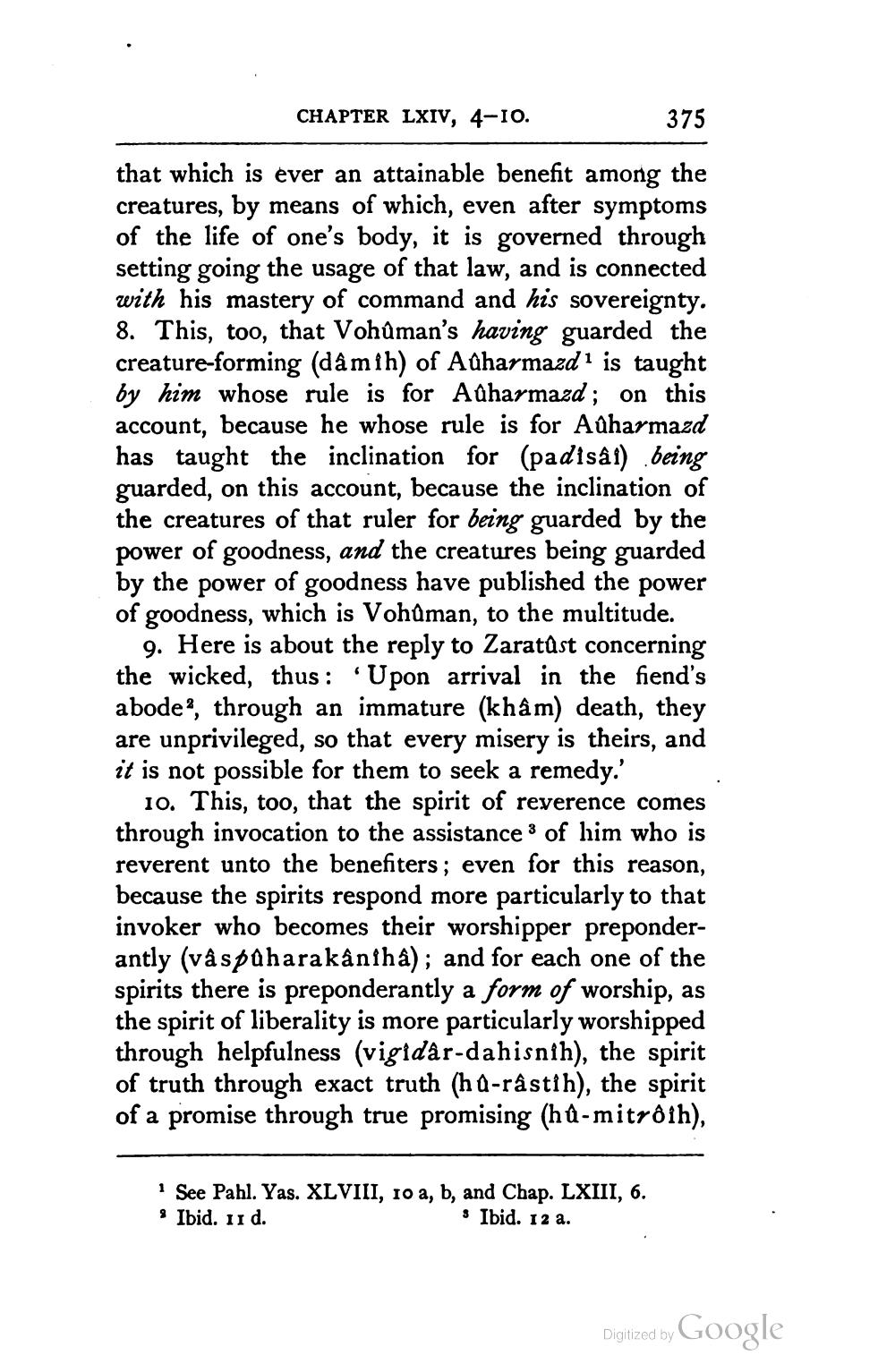________________
CHAPTER LXIV, 4-10.
375 that which is ever an attainable benefit among the creatures, by means of which, even after symptoms of the life of one's body, it is governed through setting going the usage of that law, and is connected with his mastery of command and his sovereignty. 8. This, too, that Vohûman's having guarded the creature-forming (dà mih) of Allharmazd 1 is taught by him whose rule is for Allharmazd; on this account, because he whose rule is for Adharmazd has taught the inclination for (padisai) being guarded, on this account, because the inclination of the creatures of that ruler for being guarded by the power of goodness, and the creatures being guarded by the power of goodness have published the power of goodness, which is Vohdman, to the multitude.
9. Here is about the reply to Zaratust concerning the wicked, thus : Upon arrival in the fiend's abode, through an immature (khâm) death, they are unprivileged, so that every misery is theirs, and it is not possible for them to seek a remedy.
10. This, too, that the spirit of reverence comes through invocation to the assistance 3 of him who is reverent unto the benefiters; even for this reason, because the spirits respond more particularly to that invoker who becomes their worshipper preponderantly (vås püharakâniha); and for each one of the spirits there is preponderantly a form of worship, as the spirit of liberality is more particularly worshipped through helpfulness (vigidar-dahisnih), the spirit of truth through exact truth (h Q-râstih), the spirit of a promise through true promising (hů-mitrôih),
See Pahl. Yas. XLVIII, 10 a, b, and Chap. LXIII, 6. Ibid. 11 d.
Ibid. 12 a.
Digitized by Google




